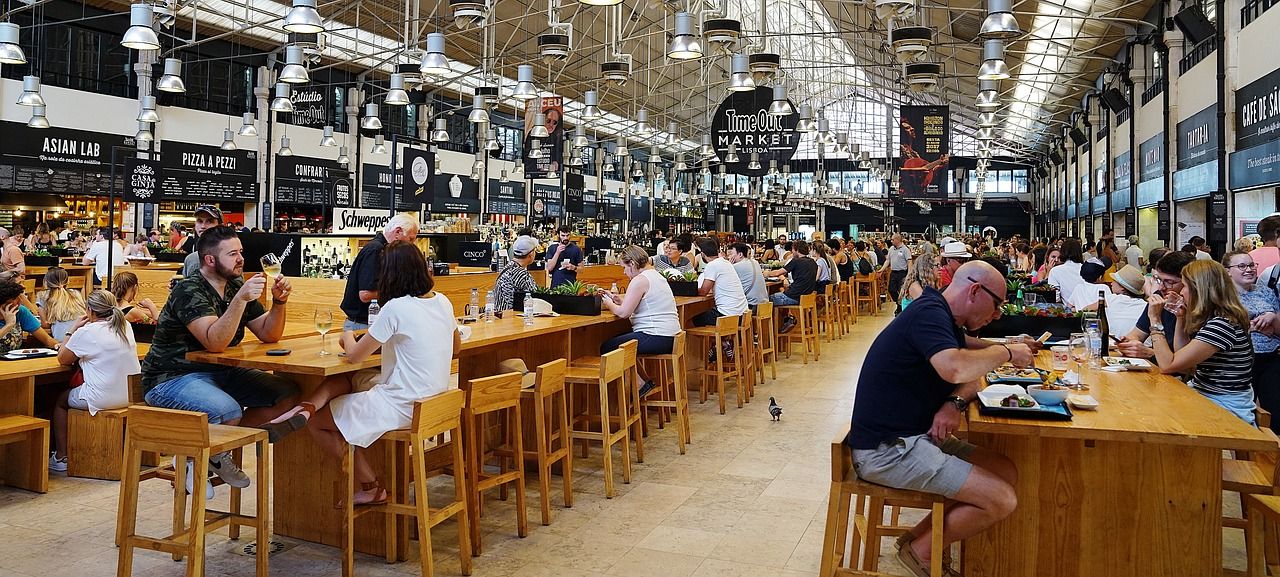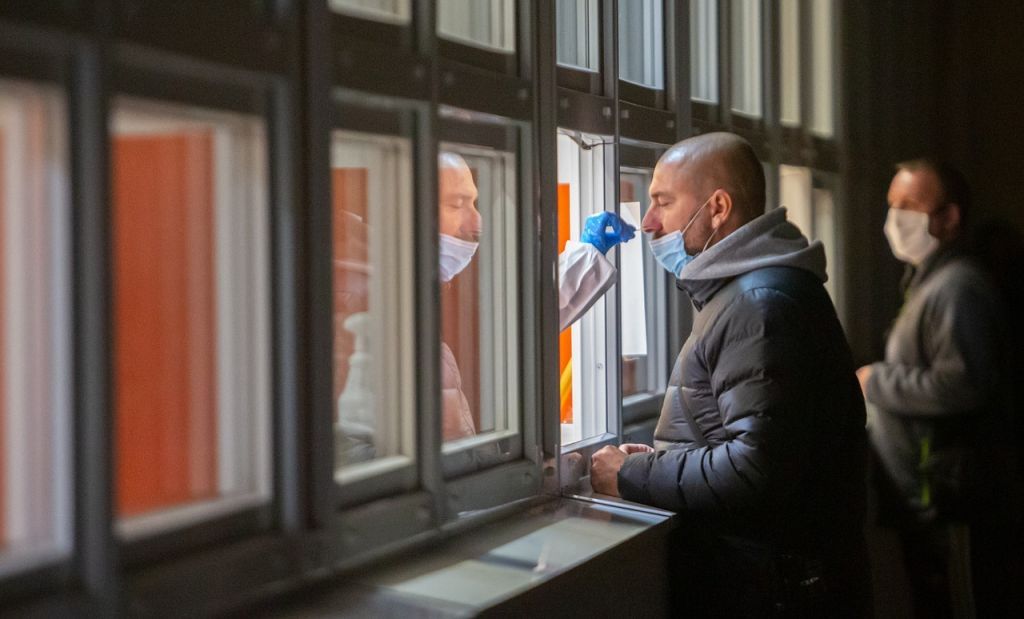Portugal with its rich and unique culture, lively cities, and beautiful countryside has already reopened to international travel.
Portugal is the first European country to receive the ‘Safe Travels’ seal from WTTC. The specially designed stamp will allow travelers to recognize governments and businesses around the world which have adopted health and hygiene global standardized protocols – so consumers can experience ‘Safe Travels’.
As the economic and social activities in the country started to resume, Turismo de Portugal created a “Clean&Safe” stamp of approval to distinguish tourist activities that are compliant with hygiene and cleaning requirements for the prevention and control of COVID-19 and other possible infections.
Can I travel to Portugal?
- Traveling from EU countries is allowed without restrictions.
- Traveling from Norway, Switzerland, Iceland, and Liechtenstein, as well as the United Kingdom, is allowed without restrictions.
Air travel to and from Portugal is allowed to:
- EU countries,
- Schengen Associated countries – Liechtenstein, Norway, Iceland, Switzerland, and the UK
- Australia, Canada, China, South Korea, Georgia, Japan, Morocco, New Zealand, Rwanda, Thailand, Tunisia, Uruguay
British travelers that arrived in England from Portugal before, 22 August, they will need to self–isolate, according to the UK Government’s announcement on August 22, 2020. Brits should follow up on the latest quarantine restrictions.
It is not necessary to present the COVID-19 Test on these flights unless the destinations are the archipelagos of Madeira or the Azores.
Flights between Portugal and other destinations will only be permitted for essential travel. In this case, passengers must present a negative test to COVID-19 (RT-PCR), carried out within 72 hours before departure time. This test is not asked in Portugal for those who are in transit and do not have to leave the airport facilities.
‘Essential travel’ is defined as trips allowing the transit, entry into and departure from Portugal for the following persons:
- citizens of an EU member state, Schengen Associated countries, and their family members,
- third-country nationals traveling for professional purposes, study, family reunions, health and humanitarian reasons, and under the reciprocity principle.
In essential travels, national and foreign citizens with legal residence in Portugal and diplomatic personnel accredited in Portugal who, exceptionally, do not present the test, will have to do it on arrival, at the airport, and at their own expense. Foreign passengers who embark without the test performed will be refused entry into national territory, with the airline being the subject of a fine.
Portuguese airports have implemented several initiatives in order to keep staff and passengers safer. A body temperature measurement system was implemented on arrival. Passengers will be asked to fill out a form from the Portuguese Health Authorities to be traced if they have been exposed to a case of COVID-19 on board.
If you want to travel to Portugal by car, there are no restrictions on traveling within Portugal or crossing the border with Spain. Before you go, be sure to learn about existing measures and restrictions directly from the authorities of each country of transit.
Check what travel documents you’ll need to travel in Europe. And find out what documents you need for your spouse, children or other relatives if they are not EU nationals
If you plan to arrive Portugal by sea, the disembarking of passengers and crews from cruise ships and other vessels at Portuguese ports is prohibited, except for Portuguese citizens and residents, notwithstanding the occasional authorization for the exchange of crews or disembarkation to return to the country of origin.
 Time Out Market Lisbon
Time Out Market Lisbon
Visiting Restaurants and Cafés in Portugal
The restaurants and cafés are open complying with several rules of hygiene and social distance.
Cafes and bars must close until 8 pm in the Lisbon area and at 1 am in the rest of the country. Restaurants must close at 1:00 am.
Visiting Museums or Other Tourist Attractions
Tourist attractions such as monuments, museums, zoos, or aquariums are open to visitors, who must comply with the rules of social distance and wear face masks.
Additionally, libraries, stores, and supermarkets allow only a small number of people to enter each time, who must wear a face mask.
Where can I stay?
The vast supply of hotel establishments available all around the country provides tourists with accommodation, either with or without the provision of meals and other accessory services. During the COVID-19 pandemic, it is advised to stay in properties that take health & safety measures. You can use the filter for those properties. See accommodation options in Lisbon and Porto and don’t forget to filter properties that take health & safety measures.
 Benagil Caves, Algarve
Benagil Caves, Algarve
What about Beach?
The bathing season began on June 6 with the beaches being supervised and the access conditioned by rules of circulation and use, which include social distance and limited occupation.
The Portuguese Atlantic coast with a wide variety of mostly white and fine sandy beaches, a long summer, and many hours of sunshine spread throughout the year make Portugal an excellent beach destination and a good option for your next vacation. 360 beaches were awarded the European Blue Flag and 208 considered Accessible Beach.
To help you choose the best beach, an information system was implemented that shows the level of occupancy using signs:
- Green: low occupancy (1/3)
- Yellow: high occupancy (2/3)
- Red: full occupancy (3/3)
That information will be updated in real-time on the “Info Praia” app (available for iOS and Android) and on the Portuguese Environment Agency’s web site
Restrictions on Traveling Within The Country
There are no restrictions on traveling within the country. Social distancing rules and the use of a face mask should be observed in the places where it is indicated.
Health care and Travel Insurance
According to Portuguese law, all foreign citizens have access to the National Health Service. However, there are specific procedures for access, considering the country of origin, whether it is a European Union country or a country that has a bilateral agreement with Portugal.
If you are an EU citizen, if you unexpectedly fall ill during a temporary stay in another EU country – whether on holiday, a business trip, or studying abroad – you are entitled to any medical treatment that can’t wait until you get home. You have the same rights to health care as people insured in the country you are in.
You should always take your European Health Insurance Card (EHIC) with you on all trips abroad. This card is proof that you are insured in an EU country.
If you don’t have a European Health Insurance Card (EHIC), or you can’t use it (for instance, for private health care), you can’t be refused treatment, but you might have to pay for your treatment upfront and claim reimbursement once you get home.
Portugal has developed travel insurance for visitors residing abroad – Portugal Travel Insurance – which covers, among other aspects, medical, surgical, pharmaceutical, and hospital expenses related to Covid-19, as well as the cancellation, interruption expenses, or extension of the trip also for reasons of Covid-19. For more information visit here
It covers the entire national territory for Covid-19 medical, surgical, pharmaceutical, and hospital expenses. The insurance also covers the expenses of cancellation, interruption, or extension of travel due to the pandemic.
The insurance by Visit Portugal sits alongside the renewal of the Portugal Health Passport, which is available to all who visit Portugal and now covers Covid-19 tests. Tourists can register for free on the Health Passport website, which guarantees them access to COVID-19 testing; access to urgent health care, or check-ups at five different hospitals throughout the national territory.













